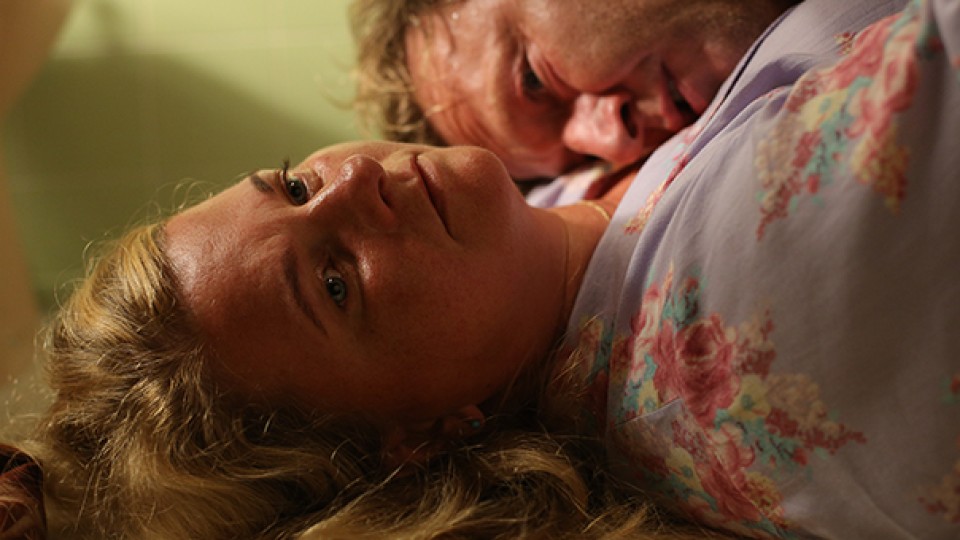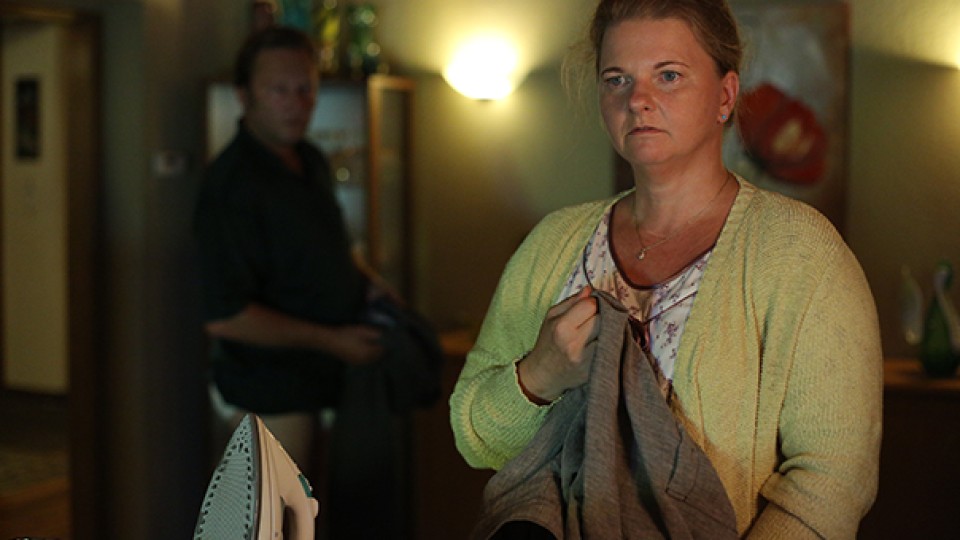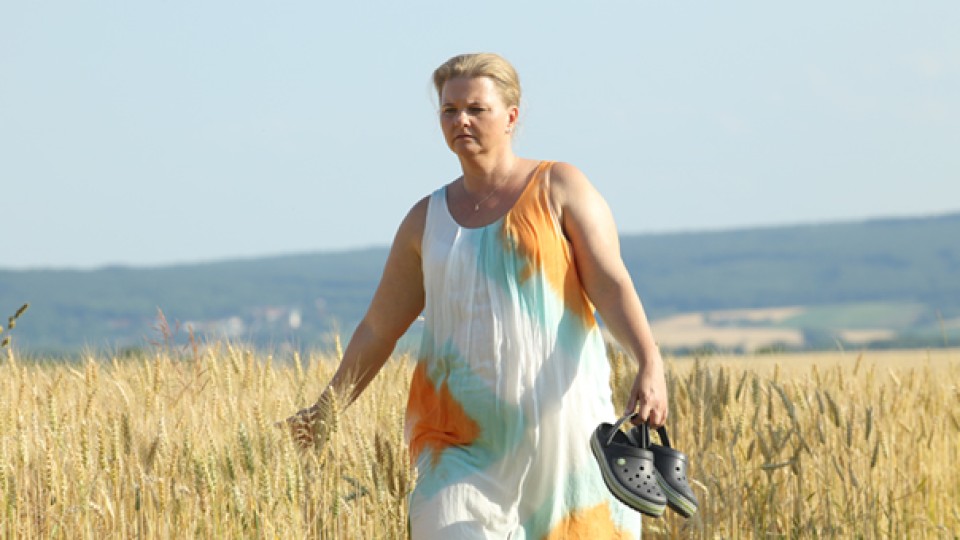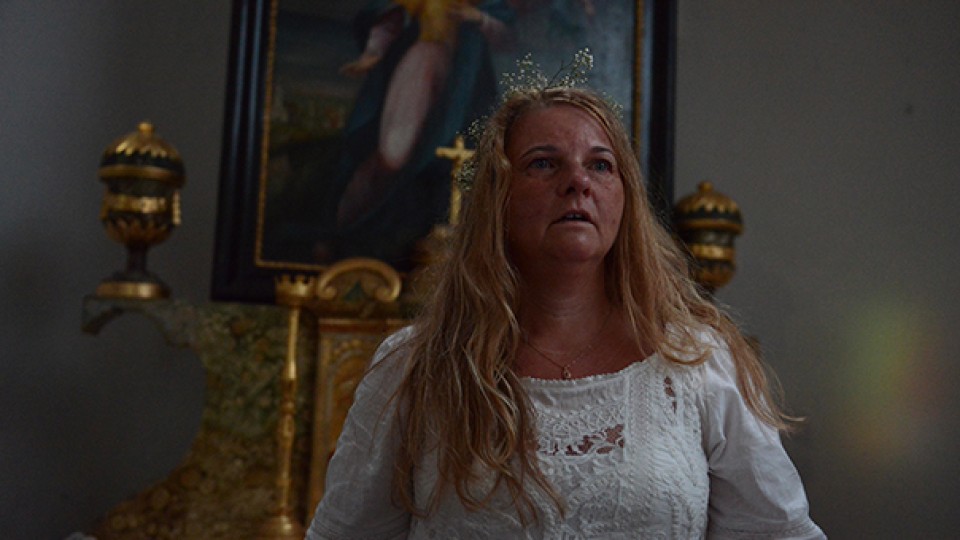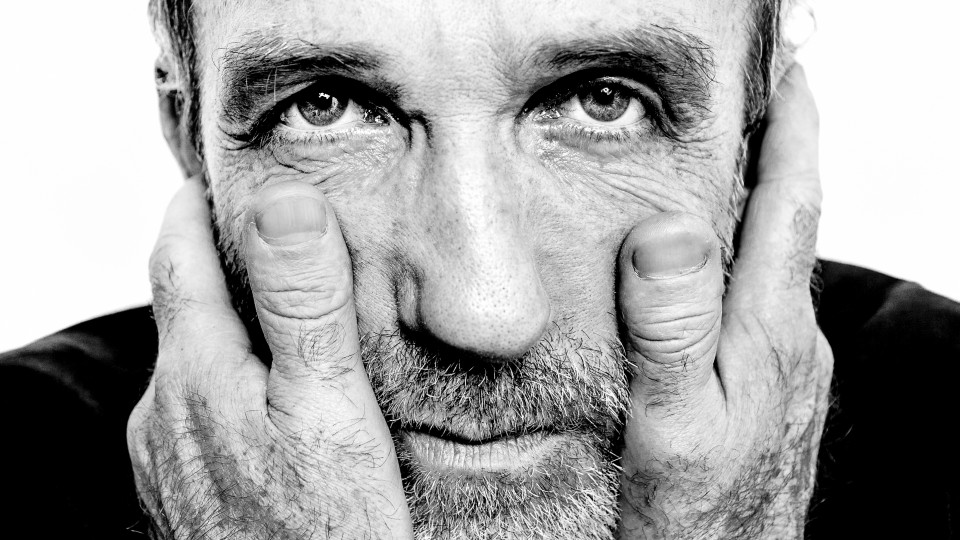Karl Markovics talks about his new feature film SUPERWORLD which is ready for world premiere at the Berlinale FORUM 2015.
After the success of your first feature film, Breathing, what experience and insights helped you as you worked on your next story?
Karl Markovics: It’s hard to say. Writing a screenplay always means starting from the beginning. I don't really feel
the experience of writing Breathing helped me avoid any pitfalls when I was writing SUPERWORLD. In fact, I went through exactly the same classic nightmares I
experienced with Breathing, which just re-occur constantly to an author – including a complete writer's block and wondering whether the entire
project was at all worthwhile. Perhaps the only difference this time was that I knew rationally I would get through it. Although
that knowledge doesn't actually help very much in the concrete situation. Something that came as a relief at the end of writing
Breathing and struck me sooner with SUPERWORLD was the realization that basically you're always writing about yourself. No matter what
metaphors you use, no matter what detours you take. It's a story that refers to the self, though in a very extended form:
as a father/mother self, as an I/you self, and a man/woman self, and so on. It's about an I/you relationship which happens
to be with a transcendental partner.
With reference to Breathing, you once mentioned that you had a large number of stories in your bottom drawer that were in a more or less advanced stage
of the screenwriting process. Was SUPERWORLD one of those stories, or was it one that you simply encountered? After all, intuition
and openness have always been factors in your working process.
Karl Markovics: It wasn't a story I had in the bottom drawer. In fact, it occurred to me quite realistically in the form of
a miniature, a tiny encounter in a supermarket, and that was enough to act as a catalyst for a story about a woman who was
a cashier in a supermarket.
What was that catalyst?
Karl Markovics: I happened to be watching a cashier in a supermarket who didn't have anything to do at that moment. She had
started the conveyor belt and cleaned it, and she was staring ahead as if at nothing. The conveyor belt was running in front
of her. It was a still life, a living image. It only lasted a few seconds. And that's what's fascinating: a film can create
eternity or slow time down. I was thinking to myself: I wonder what she's thinking about? And since I like opposites, I thought:
this is a fairly simple woman who is now listening to God. Suddenly He says to her: "Hello! You can hear me. You're not crazy.
I'm talking to you now." That was the thought that started everything moving. I could see her social setting immediately:
a husband, two children, a suburban house with a small garden. And unlike my response to other stories, this time I didn't
fight it: I immediately accepted it. I come from a humble background myself, from an outer suburb of a city. It was a familiar
setting for me, and I could draw on my own immediate experience – while the being my protagonist encounters not only
isn't familiar but never can be familiar. God is always a complete mystery.
Even though you base your narratives on real life, you have always emphasized that for you, the cinema is also a matter of
heightened reality. The title SUPERWORLD does convey the idea of excess. So what does this "super world" stand for?
Karl Markovics: Originally, after Breathing I intended to focus on a completely different story, and I was in fact working on it very intensely. Even though I am not
at all the kind of director who writes stories to put himself on the screen, in that film I would have played a major role.
But the project was put on hold because this story pushed itself to the forefront. It was very quickly apparent that I wouldn't
finish any other film before SUPERWORLD was made. It was like taking out a mortgage. At first it was intoxicating to feel
something great was in the air, and then it became a huge burden, and it even got to the stage where I thought Breathing might
end up being my only film. The question about "super world" is relatively easy to answer: I think all of us have an inbuilt
curiosity about the mystery of God. It's composed partly of longing and partly of fear. To a certain extent it's a film about
God, and how I imagine having a relationship with Him. It's about an idealized relationship with God.
What prompted you to address this spiritual subject?
Karl Markovics: There has never been any great conflict or crisis in my personal relationship to God. I was brought up in
the Protestant church, which has far fewer aspects that are open to criticism than the Catholic faith. It grew out of a protest
against the omnipotence of the Pope and lots of other things we can relate to fairly closely today in our liberal, enlightened,
democratic country. Protestant clergy can marry and have a family. Basically the Protestant religion is a bit colorless; it
doesn't have much chic or pomp, but it also invites fewer controversies. At least, I never felt the need to adopt a defensive
position towards it.
However, there is one issue which has always interested me, which is that I would like to "truly" believe, in the sense of
possessing absolute certainty. But that doesn't exist. Which is what makes the question very special and far-reaching. I find
myself pre-occupied with it over and over again. In literature I have encountered this issue in particular with authors who
especially move me. It seems to me that I find in their work a similar type of desperate longing, a desire to clutch hold
of God. That’s what I see in Tolstoy, Maxence van der Meersch, James Joyce and Thomas Bernhard. I'm thinking in particular
of his cycle of poems In hora mortis. This issue is within us, and even more so in us creative people because we have so much
to do with the "super worldly". Where does an idea come from? Where does inspiration come from? The attempt to tell a great
story with very simple people strikes me as an exciting challenge.
In contrast to literature, the film has the task of making something visible. How do you cope with the challenge of making
something visible or perceptible in the film when that something can't be perceived?
Karl Markovics: In the first part of the film in particular, before our main character accepts that it must be God speaking
to her – without her giving him a name or using that word, and without the audience being able to perceive it either
– I was basing my work very much on Alfred Hitchcock. For me Gabi Kovanda, my protagonist, is like a Kim Novak in Vertigo.
A strange, curious character who is much more grounded in the real world in SUPERWORLD. She is anchored securely in her milieu,
and there isn't anything enigmatic about her. So a kind of suspense arises from her sudden transformation, her reactions which
don't have any visible explanation. I can well imagine that we may also experiment with music here. It would appeal to me
to match the supermarket cashier who just happens to live in the lowlands of eastern Austria with a really magnificent score.
I'd like to get back to the question of the visual level and the possibility of making something visible. How did you go about
finding images?
Karl Markovics: I like metaphors, and I think I'm pretty good at using them. In this case that's really helpful. Because God
can only be depicted "through" something else. Whether it's the little red dot of the TV standby light which suddenly gains
great significance, or a tracking shot to the freezer door which isn’t quite shut, so some light streams out, or a tap
in the kitchen dripping in the middle of the night. And I don't have any problem with a burning thuja bush, which brings us
very close to the biblical metaphor. On the visual level I attempt to be bold in my use of signs, visions and stigmata. There
are plenty of them relating to the subject of God and religion in our collective memories.
How could the main protagonist, Gabi Kovanda, be characterized?
Karl Markovics: She is a person who doesn't appear, from the outside, to have anything to complain about. She has a job, and
so does her husband; their marriage works, and their children are past the difficult age. Their daughter is already living
with her boyfriend, and their son is a regular soldier in the Austrian army – he plans to move out soon as well. They
are already talking about retirement and taking it easy when they get their pensions. When my wife read the script she said
to me: "Do you realize you've written a film about the change of life in women?" I was very pleased. This really is about
a transformation. Something turns up, and the question is what happens next. She has completed her task of bringing up children,
so the question confronting Gabi Kovanda for the first time is: "What am I still here for?" It is at this point in my story
that God turns up and says: "Because you are you. Because I want you to be there." But that’s bound to be a bit overpowering
for someone at first.
Is she a religious person?
Karl Markovics: Not in the slightest. Probably, like the vast majority of the urban population in this country, she's been
influenced by her upbringing. So there is nothing at all religious about her apart from the vague feeling that "there must
be something there", going to mass at Christmas and having a church wedding.
How did you come to choose Ulrike Beimpold for the leading role?
Karl Markovics: For a long time I really agonized about casting the female protagonist, because I had a fixed idea in my mind,
and in the end I had to give it up. So for a while that prevented me from considering anybody else. And then one day my producer
Dieter Pochlatko called and told me about a production he'd seen with Ulrike Beimpold. I watched the DVD of Spuren des Bösen, and I was really impressed. I saw her as an incredible actor who is strikingly modest. And I've seldom seen an actor who
is so well prepared on the one hand while at the same time being so flexible, so undogmatic and so capable of working with
immense precision.
You started shooting in the middle of June, just as summer was reaching its peak. Was it important that filming should take
place in midsummer?
Karl Markovics: It was absolutely crucial. I wanted the feeling that each shot was two-thirds sky, and the sky had to be really
bright blue. There could be some clouds or rain, but I really needed the summer light – the kind of light you hardly
expect to find here, but you get something very close to it in the Burgenland region of Austria. If there were an Austrian
Hollywood, it would definitely be based around Lake Neusiedl. And the decision to film in Burgenland during June and July
turned out to be absolutely right, not least because of the good luck we had with the weather. The scenes get a very particular
kind of glow. And there's even a different feeling about the interior shots when you sense the presence of sunlight. It's
also easier to create contrasts in summer. It's simpler if you occasionally have to exclude too much light than in winter,
when everything is overcast and you have to create it artificially.
To get back to the story for a minute, without giving too much away: what does God do with Gabi Kovanda? Does she ever get
rid of the voice that is talking to her?
Karl Markovics: I don't want to reveal too much. I’d just like to say this: in the 1980s Hans Dieter Hüsch was a famous
cabaret artist. He once came up with the line: "Nobody gets past God, except Rummenigge“, referring to one of the most
famous footballers on the German national team. I think I’ll leave it at that, because it sums up very well the banal/supernatural
flair I’ve been trying to create in SUPERWORLD.
Interview: Karin Schiefer
July 2014

